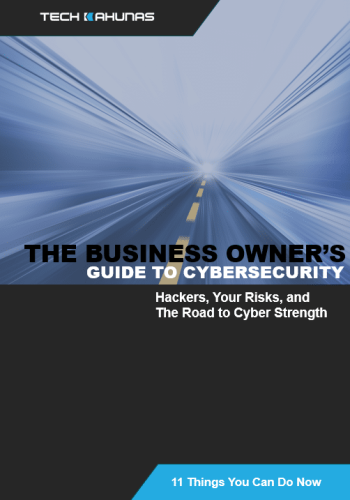CMMC compliance is pivotal for biotech companies aiming to win federal contracts, particularly with the Department of Defense. It mandates adherence to stringent cybersecurity practices to protect sensitive research data, integrating existing standards like NIST SP 800-171. The multi-level framework guarantees robust data protection through encryption, access controls, and regular risk assessments. Compliance not only mitigates cyber threats but also aligns with regulatory requirements, thereby enhancing trust with stakeholders. Achieving compliance involves thorough evaluations and strategic planning to address cybersecurity gaps. Biotech firms gaining certification enjoy enhanced market access and competitive advantage. Discover how these elements forge a pathway to federal opportunities.
Key Takeaways
- CMMC compliance is mandatory for biotech companies to qualify for Department of Defense federal contracts.
- Achieving CMMC compliance enhances data security and protects sensitive research information.
- Compliance opens access to a broader range of government partnership and funding opportunities.
- CMMC certification builds trust with stakeholders, including investors and government entities.
- A strong cybersecurity posture through CMMC compliance offers a competitive advantage in the biotech sector.
Understanding CMMC
In the domain of cybersecurity, understanding the Cybersecurity Maturity Model Certification (CMMC) is paramount for biotech companies seeking to engage with the Department of Defense (DoD) and its supply chain. The CMMC framework overview is designed to safeguard sensitive information by establishing a unified cybersecurity standard. It encompasses multiple maturity levels—ranging from basic cyber hygiene practices to advanced security protocols—ensuring that companies maintain robust cybersecurity postures commensurate with their contractual obligations.
The certification process insights reveal a structured approach, where organizations must undergo an assessment by an accredited third-party CMMC assessor. This evaluation determines the company’s maturity level, which aligns with the specific requirements of their intended DoD contract.
The CMMC framework integrates various existing cybersecurity standards, such as NIST SP 800-171, and emphasizes continuous improvement and adaptability to emerging threats.
Biotech companies must meticulously prepare for the certification process, ensuring that their cybersecurity processes, policies, and practices meet the requisite standards. Understanding the intricacies of the CMMC framework and certification process is not merely a compliance exercise; it is a strategic imperative to secure federal contracts and protect sensitive defense-related data from adversaries.
Importance for Biotech
For biotech companies, CMMC compliance is essential for safeguarding sensitive research data against potential cyber threats, thereby protecting intellectual property and competitive advantages.
Implementing robust cybersecurity measures not only mitigates risks associated with data breaches but also fortifies the integrity of critical research processes.
Additionally, adherence to CMMC standards guarantees that biotech firms meet regulatory compliance requirements, facilitating smoother operations and fostering trust with partners and stakeholders.
Protecting Sensitive Research Data
Safeguarding sensitive research data is paramount for biotech companies, as it underpins their innovation and competitive edge in the industry. Maintaining data integrity is critical to guaranteeing that proprietary information remains unaltered and trustworthy.
Implementing robust data encryption is essential to protect data both in transit and at rest, thereby preventing unauthorized access. Access control mechanisms must be stringently enforced to guarantee that only authorized personnel are able to interact with sensitive data.
A thorough risk assessment should be conducted regularly to identify potential vulnerabilities and guide the implementation of appropriate security measures. An effective incident response plan is essential for mitigating the impact of data breaches and guaranteeing quick recovery.
Security training programs should be mandatory for all employees to raise awareness about potential threats and the importance of data protection. Compliance audits and threat detection play significant roles in maintaining a secure environment.
A detailed data classification system aids in identifying data that requires special protection. To guarantee ongoing security, policy enforcement must be consistent and thorough, supporting the overarching goal of safeguarding sensitive data.
Enhancing Cybersecurity Measures
Amid the evolving landscape of cyber threats, enhancing cybersecurity measures has become an essential priority for biotech companies. Safeguarding intellectual property and sensitive data requires robust strategies, starting with rigorous data encryption protocols to protect information at rest and in transit.
Extensive threat assessment is vital to identify potential risks that could compromise systems. Biotech firms must establish an incident response plan to swiftly and effectively address any security breaches, minimizing potential damage.
Security training for employees is indispensable, guaranteeing that staff are well-versed in best practices and aware of the latest threats. Integrating risk management frameworks allows companies to proactively address vulnerabilities and prioritize security efforts.
Implementing access control measures restricts data access to authorized personnel only, reducing insider threats. Regular vulnerability scanning identifies and rectifies weaknesses, while robust firewall configuration enhances network security.
With increasing reliance on digital solutions, cloud security must be prioritized to protect data stored and processed in the cloud. Conducting compliance audits guarantees adherence to cybersecurity standards, facilitating continuous improvement.
Together, these measures form an extensive cybersecurity framework, vital for biotech companies to protect their assets and maintain trust with partners and clients.
Ensuring Regulatory Compliance
Maneuvering the intricate landscape of regulatory compliance is a vital imperative for biotech companies, as it directly impacts their operational integrity and market viability.
Understanding and adhering to regulatory frameworks guarantees that a company’s products meet both safety and efficacy standards, which is particularly important in the biotech sector where products can greatly impact human health.
Regulatory compliance is not merely a legal obligation but a cornerstone of trust with stakeholders, including investors and consumers.
Biotech companies must be vigilant in conducting compliance audits to identify and rectify any discrepancies in adherence to these frameworks.
This proactive approach not only safeguards against potential legal repercussions but also enhances the company’s reputation in the competitive market.
To effectively navigate regulatory compliance, biotech firms should focus on the following:
- Regularly update compliance practices to align with evolving regulatory frameworks.
- Implement rigorous internal audits to guarantee ongoing adherence and identify areas for improvement.
- Invest in training programs for employees to foster a compliance-oriented culture.
- Leverage technology to streamline compliance processes and maintain thorough records.
Steps to Achieve Compliance
Achieving CMMC compliance for biotech companies involves a structured and meticulous approach that guarantees adherence to cybersecurity standards. The initial step in this process is to conduct a thorough assessment of your organization’s current cybersecurity posture against relevant compliance frameworks. This assessment helps identify existing gaps and areas requiring enhancement. Engaging with an experienced consultant familiar with the intricacies of CMMC can streamline this evaluation. Following the assessment, it is vital to develop a strategic plan to address identified deficiencies and align with the required CMMC level.
An essential component of achieving compliance is the establishment of robust audit processes. These processes not only guarantee adherence to compliance requirements but also facilitate continuous monitoring and improvement. Implementing efficient audit mechanisms aids in maintaining cybersecurity standards over time, thereby minimizing the risk of data breaches and enhancing the company’s reputation in the federal contracting space.
| Step | Description |
|---|---|
| Assessment | Evaluate current cybersecurity posture |
| Strategic Planning | Develop a plan to address gaps |
| Audit Implementation | Establish processes for ongoing compliance monitoring |
Challenges and Solutions
Maneuvering the complexities of CMMC compliance presents significant challenges for biotech companies, compounded by the intricate nature of protecting sensitive research data.
Implementing effective security measures requires an extensive understanding of both the regulatory landscape and the specific vulnerabilities inherent in biotech operations.
Addressing these challenges necessitates a strategic approach that balances robust cybersecurity protocols with the dynamic needs of innovation in the biotech sector.
Navigating Compliance Complexities
Compliance in the biotech sector often presents a labyrinth of challenges, particularly when aligning with the Cybersecurity Maturity Model Certification (CMMC) requirements.
The intricate nature of compliance frameworks requires biotech companies to navigate complexities in various aspects, especially in risk assessment. Understanding and implementing CMMC standards necessitates a detailed evaluation of existing security protocols and a thorough strategy for addressing potential vulnerabilities.
To effectively navigate these complexities, biotech firms can consider the following steps:
- Conduct Thorough Risk Assessment: Regularly identify and assess potential cybersecurity threats to guarantee that risk management strategies are current and robust. This will help in pinpointing specific areas requiring enhanced security measures.
- Align with Established Compliance Frameworks: Leverage existing frameworks like NIST and ISO to streamline the compliance process, guaranteeing alignment with CMMC requirements while reducing redundancy and resource expenditure.
- Develop a Tailored Compliance Roadmap: Create a strategic plan that outlines specific steps to achieve CMMC compliance, considering unique organizational needs and existing infrastructure.
- Engage Expert Consultation: Utilize the expertise of cybersecurity professionals to guide the compliance journey, ensuring that all aspects of the CMMC requirements are thoroughly understood and implemented.
Implementing Effective Security Measures
Effectively implementing security measures in biotech companies involves a multifaceted approach to address both current and emerging threats. This process necessitates the integration of robust security frameworks that align with industry standards and regulations.
Biotech companies must conduct thorough risk evaluations to identify vulnerabilities within their systems, guaranteeing that all potential entry points for security breaches are meticulously examined. By adopting a proactive stance towards security, organizations can prioritize their resources towards mitigating identified risks.
The implementation of security frameworks such as the NIST Cybersecurity Framework or ISO/IEC 27001 provides a structured methodology to safeguard sensitive information. These frameworks serve as a blueprint for establishing a resilient security posture.
However, challenges arise in adapting these frameworks to the unique needs of biotech companies, which often handle sensitive intellectual property and proprietary research data.
Solutions involve tailoring security measures to address specific industry threats and integrating advanced technologies like artificial intelligence and machine learning for enhanced threat detection and response.
Continuous monitoring and regular audits are vital components that guarantee the efficacy of the implemented security strategies. By rigorously evaluating and updating their security frameworks, biotech companies can effectively safeguard their assets and maintain compliance with CMMC requirements.
Benefits of Compliance
For biotech companies, achieving CMMC compliance offers a myriad of notable advantages that extend beyond regulatory fulfillment. Not only does it address the cost implications of potential data breaches, but it also provides a competitive advantage by aligning companies with industry standards. This alignment fosters client trust, as customers and partners recognize the commitment to safeguarding sensitive information.
Compliance further aids in risk mitigation, ensuring that companies are better prepared to handle cyber threats, thereby enhancing their reputation in the marketplace.
Moreover, CMMC compliance opens doors to various partnership opportunities and expands market access. Companies can engage with federal contracts and collaborate with other compliant entities, thereby broadening their business horizons.
The innovation potential is heightened as secure environments encourage research and development without the constant threat of data compromise. Additionally, a strong security posture can notably enhance a company’s reputation, making it more attractive to top talent in the industry.
To summarize, the benefits of CMMC compliance for biotech companies include:
- Competitive Advantage: Aligning with industry standards and increasing client trust.
- Risk Mitigation: Protecting against cyber threats.
- Market Access: Enabling collaborations and federal contract opportunities.
- Reputation Enhancement: Improving talent attraction and fostering innovation.
Future Trends in CMMC
As biotech companies increasingly recognize the myriad benefits of achieving CMMC compliance, it becomes pertinent to explore the evolving landscape of cybersecurity standards that will shape the industry’s future. The CMMC evolution is poised to influence the certification process by integrating more rigorous audit strategies and technology integration. This evolution emphasizes a structured compliance timeline, enabling organizations to systematically align their cybersecurity measures with federal requirements.
| Aspect | Future Trend |
|---|---|
| Certification Process | Streamlined with enhanced audit strategies |
| Training Requirements | Increased focus on continuous learning |
| Stakeholder Engagement | More collaborative frameworks |
Training requirements will intensify, compelling stakeholders to invest in continuous learning to keep pace with evolving best practices. This shift not only guarantees robust protection against cyber threats but also fosters stakeholder engagement, creating collaborative frameworks for shared risk management. Industry impact will be significant, as organizations that adapt swiftly to these changes will find themselves at a competitive advantage in securing federal contracts.
Funding opportunities may surface to support companies in this change, helping them manage the financial aspects of meeting new compliance demands. Ultimately, the forward-looking approach in CMMC evolution prioritizes resilient, well-integrated cybersecurity measures that safeguard sensitive information while enhancing operational efficacy.
Frequently Asked Questions
What Specific Costs Are Associated With Achieving CMMC Compliance for Biotech Companies?
The cost breakdown for achieving compliance includes expenses for gap analysis, cybersecurity upgrades, employee training, and ongoing monitoring. Compliance challenges often arise from complex regulatory requirements, necessitating substantial investment in resources and expertise to guarantee adherence to standards.
How Does CMMC Compliance Affect a Company’s Cybersecurity Insurance Premiums?
CMMC compliance can positively influence a company’s cybersecurity insurance premiums by demonstrating reduced cybersecurity risk. This compliance aids insurance assessment processes, potentially lowering premiums due to improved security posture and adherence to standardized cybersecurity practices.
Are There Resources Available for Small Biotech Companies to Assist With CMMC Compliance?
Small biotech companies can access various resources for CMMC compliance, including specialized CMMC training programs and compliance tools. These resources are tailored to facilitate understanding and implementation of CMMC requirements, ensuring readiness for federal contract opportunities.
How Long Does the CMMC Certification Process Typically Take for Biotech Companies?
The certification timeline for biotech companies seeking CMMC compliance generally spans several months, contingent on size and complexity. Effective preparation strategies, including thorough gap analysis and robust cybersecurity measures, can streamline the process, ensuring timely certification achievement.
Can CMMC Compliance Impact a Biotech Company’s Partnerships With International Entities?
CMMC compliance can greatly enhance international collaboration by establishing robust cybersecurity protocols. Compliance benefits include increased trust and credibility, potentially facilitating smoother partnerships with international entities concerned about data security and regulatory adherence in collaborative projects.



 Get your CPA firm aquainted with new FTC rules.
Get your CPA firm aquainted with new FTC rules. 




